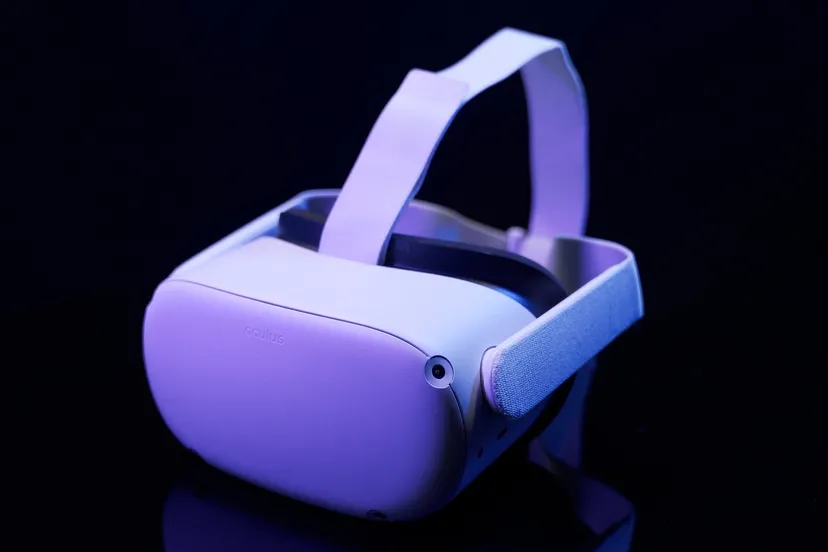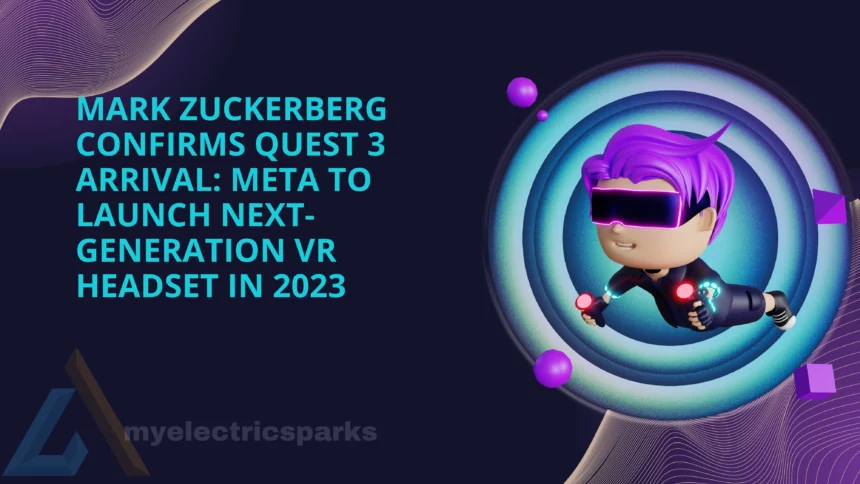Meta, formerly known as Facebook, has confirmed that it will release the next-generation Quest virtual reality (VR) headset in 2023. The announcement came during Meta’s Q3 earnings call and has sparked excitement among VR enthusiasts.
Mark Zuckerberg, CEO of Meta, revealed during an interview with Stratechery’s Ben Thompson that the upcoming Quest 3 headset would be priced in the $300, $400, or $500 range, similar to the current price range of the Quest 2. This has led to speculation that the new device will be affordable for many consumers, who will be eagerly anticipating its release.
While there is no official word on the features that the Quest 3 will include, it’s expected that the device will have upgrades to the onboard cameras and headset optics. These features are already present in the competing Pico 4 headset, which was recently released in Europe and Asia.

However, one feature that may not be included in the Quest 3 is face and eye tracking, which is exclusive to Meta’s business-focused Quest Pro device. This decision is likely due to cost considerations, as the Quest 3 is expected to be priced in the mid-range of the VR headset market.
The release of the Quest 3 will be a significant driver of Meta’s Reality Labs expenses in 2023, according to Zuckerberg. During Meta’s Q3 earnings call, he stated that “we expect Reality Labs expenses will increase meaningfully again in 2023, with the biggest drivers of that being the launch of the next generation of our consumer Quest headset.” This suggests that Meta is investing heavily in developing its VR technology, which will likely continue to evolve and improve.
The announcement of the Quest 3’s release has also left many wondering about the future of virtual reality technology. As Zuckerberg noted during his interview with Thompson, “We’re still in the early days of what’s going to be possible with this technology.” With the release of the new Quest headset still a year away, there’s plenty of time for speculation and excitement to build.
In the meantime, Meta has released the Quest Pro, which hit store shelves earlier this week. With a price tag of $1,500, the Quest Pro is aimed at high-end professionals and knowledge workers willing to pay a premium for the latest VR technology. Zuckerberg justified the Quest Pro’s cost by comparing it to the price of a laptop, stating that “that gives us the ability to build in a lot of technology there, and also improve that technology and build out the development ecosystem before we can get that down to the price point that’ll fit with consumers.”
Despite the high price of the Quest Pro, the Quest 2 remains one of the market’s most affordable self-contained VR headsets, largely due to subsidies from Meta. As the Quest 3’s release date draws closer, it will be interesting to see how Meta balances the need to innovate with the need to keep its products affordable for consumers.
MORE STORIES:
- Microsoft Azure: The Key to Unlocking Your IT Career Potential
- Mark Zuckerberg Confirms Quest 3 Arrival: Meta to Launch Next-Generation VR Headset in 2023
- Is Artificial Intelligence Heading Towards a Dangerous Future with Synthetic Data?
- Elon Musk’s Twitter Takeover Aims to Create a ‘Common Digital Town Square’ for Humanity









